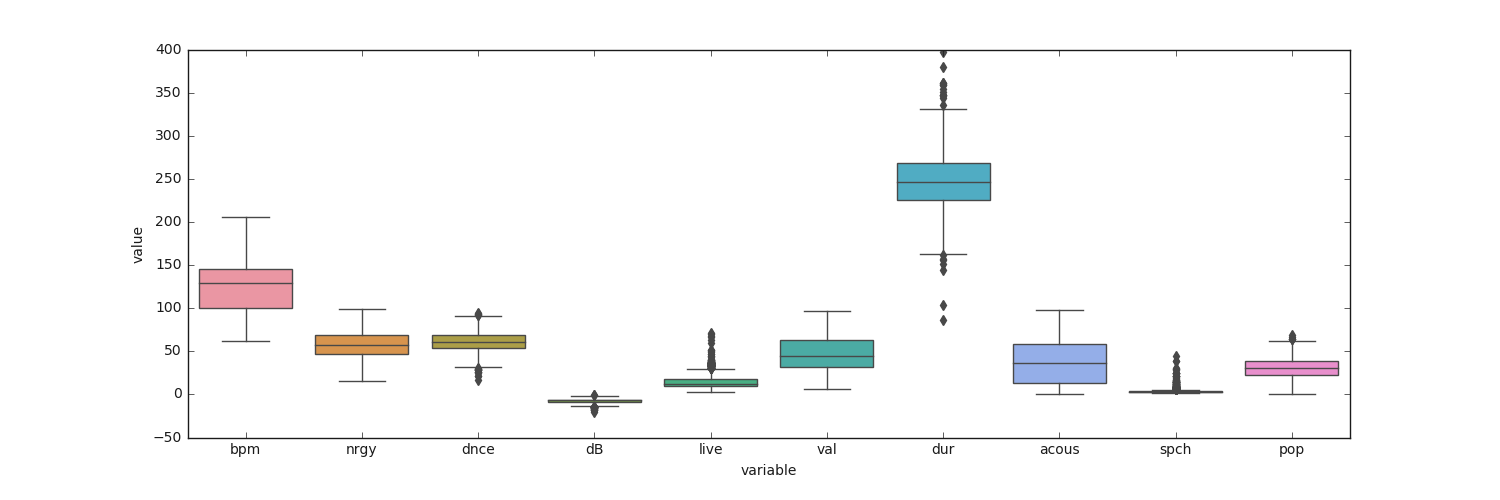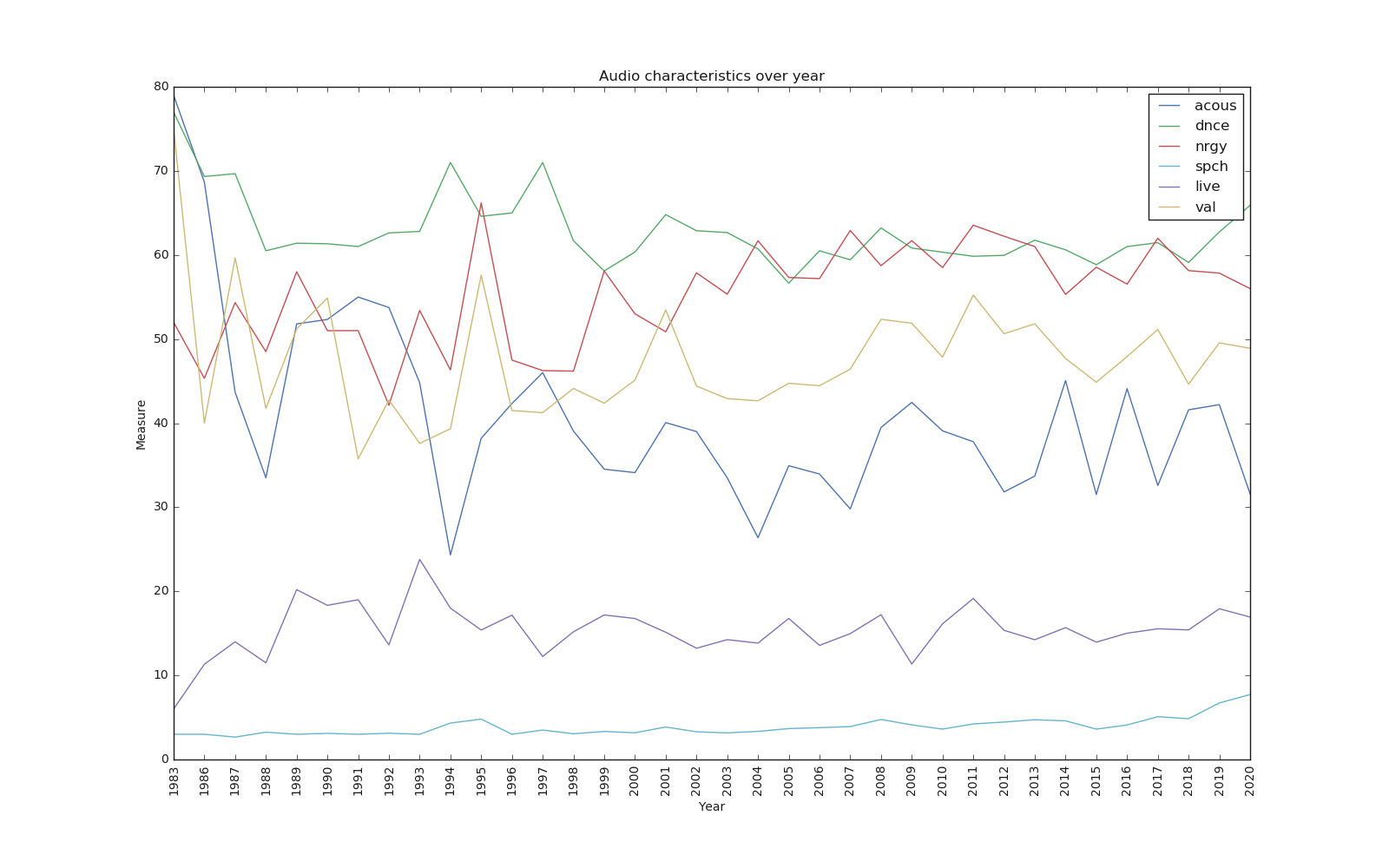- Created a tool that recommends the songs by using audio features to help the people to find the thai song base on their preference.
- Optimized the Kmean algorithm using the Elbow method and Silhouette Score to compare between the original data and the data that have been transform form the PCA method.
- Built a simple website using Flask and deployed on heroku.
Python Version: 3.8
Packages: pandas, numpy, sklearn, matplotlib, seaborn, altair, flask, pickle
Data Source : http://organizeyourmusic.playlistmachinery.com/#
Deploy ML model on webpage tutorial : https://www.youtube.com/watch?v=i3RMlrx4ol4&t=487s
Push the Flasks Apps to Heroku tutorial : https://www.youtube.com/watch?v=Li0Abz-KT78&t=526s
- Removed the unwanted column.
- Droped the duplicates songs
- Removed non thai song
- Extracted the added year and month of the song
I look at the boxplot and see that some faetures have the different magnitude. Below are a few highlight from thr EDA notebook.



First, I standardize the data because the data have different magnitude then I created the new data that come from the PCA method of 2 components.
I tried two different methods in evaluating the clustering that is elbow method and silhouette score. I choose the data from the PCA method because it has fewer distortion scores and more silhouette scores.
two different model:
- Kmeans from the original data: number of cluster = 17, distortion score = 4017.89, average silhouette score = 0.12
- Kmeans from the PCA data: number of cluster = 11, distortion score = 616.158, average silhouette score = 0.33
In this step, I build a flask web application that was hosted on a cloud by Heroku. The web takes a request for the audio feature values. You can either enter the value by yourself or select the range between a little to a lot in the audio feature and input the genre you mostly like. The web will return a list of songs in the same cluster and the songs that have the same cluster and same genre that you choose.